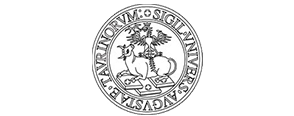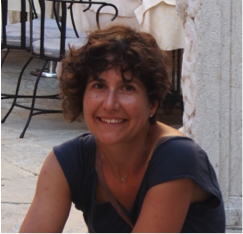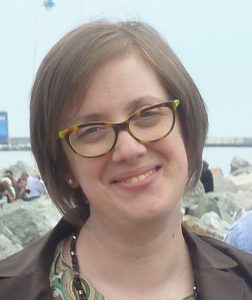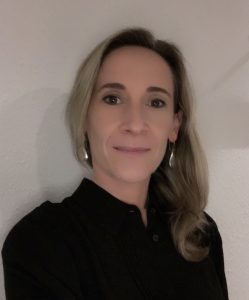University of Turin
 The University of Torino (UNITO) is one of the most ancient and prestigious Italian Universities. Nowadays, UNITO has about 70.000 students, 4.000 academic, administrative and technical staff, 1800 post-graduate and post-doctoral students and 120 buildings in different parts of Torino and in key places in Piemonte. UNITO is today one of the largest Italian Universities, open to an international perspective in the fields of both research and training. It carries out scientific research and organizes courses in all disciplines, except Engineering and Architecture. It is organized in 27 Departments where research is carried out. UNITO is active at international level through involvement of its researchers in several projects with foreign partners, establishment of joint educational courses, such as bi-national degrees and international PhD programmes, through the subscription of formal cooperation agreements (roughly 450) with institutions around the world and active participation in internationalization projects for Italian universities. It has a long record in participating in European projects.
The University of Torino (UNITO) is one of the most ancient and prestigious Italian Universities. Nowadays, UNITO has about 70.000 students, 4.000 academic, administrative and technical staff, 1800 post-graduate and post-doctoral students and 120 buildings in different parts of Torino and in key places in Piemonte. UNITO is today one of the largest Italian Universities, open to an international perspective in the fields of both research and training. It carries out scientific research and organizes courses in all disciplines, except Engineering and Architecture. It is organized in 27 Departments where research is carried out. UNITO is active at international level through involvement of its researchers in several projects with foreign partners, establishment of joint educational courses, such as bi-national degrees and international PhD programmes, through the subscription of formal cooperation agreements (roughly 450) with institutions around the world and active participation in internationalization projects for Italian universities. It has a long record in participating in European projects.
Currently UNITO is taking part in 91 research projects funded under the FP7, being coordinator in 30 of these. UNITO participates in the project with the Department of Philosophy and Education. The Department of Philosophy and Education is composed of 81 people among educators, philosophers, sociologists, anthropologists, and historians. The Department is the holder of Unesco Chair in Sustainable Development.
It has several foreign collaborations. At present it is collaborating with WZB in Berlin and ESRI in Dublin on a project on the Quality of Living in Europe, for the European Foundation on Living and Working conditions. It is involved in a number of projects on Euro Regions and it has an ongoing research and teaching collaboration with Sciences Po in Paris. Its contribution to the project is referred to competences in the field of Environmental Conflicts, Sustainable development, Environmental Accounting Methodologies, Urban Metabolism.
Cristina Sab ena is Associate Professor in Mathematics Education at the Department of Philosophy and Education at the University of Torino (Italy). She obtained her PhD in Mathematics Education at the University of Torino in 2007 with a dissertation on the role of gestures in mathematical teaching-learning processes.
ena is Associate Professor in Mathematics Education at the Department of Philosophy and Education at the University of Torino (Italy). She obtained her PhD in Mathematics Education at the University of Torino in 2007 with a dissertation on the role of gestures in mathematical teaching-learning processes.
She is member of the CIEAEM (International Commission for the Study and Improvement of Mathematics Teaching) and Editorial Board member of Educational Studies in Mathematics.
Her main research interests include multimodality and semiotics in mathematics classroom processes, mathematics education from early grades to primary school, and the networking of theories in the mathematics education field.

Francesca Morselli graduated in Mathematics at the University of Genoa (2002), obtained the Diplôme d’Etudes Approfondis (master) in Mathematics Education at the University Paris 7 (France) (2004), with a dissertation on the relationship to mathematics of prospective primary teachers, and obtained her Ph.D. in Mathematics at the University of Turin (2007) with a thesis on the “culture of theorems” at university level.
She worked as a research fellow at the University of Genoa (2006-2012) within research projects on the teaching and learning of argumentation and proof at secondary school level. She worked as a researcher at the department of Philosophy and Education the University of Turin between 2012 and 2015. Since 2015 she is associate professor of Mathematics Education at the Department of Mathematics of the University of Genova (Italy), where she works in pre-service and in-servive teacher education programs.
Her research focuses on: the interaction between affective and cognitive factors in the teaching and learning of mathematics; argumentation and proof in mathematics.

Annalisa Cusi graduated in Mathematics in 2001 at Modena and Reggio Emilia University, where she obtained a PhD in Mathematics in 2009.
In the period 2006-2008 she participated to the European Project “Transforming Mathematics Education through Teaching-Research Methodology” as mentor and math instructor for the teachers involved in experimental studies on the role of algebraic language as a tool for thinking. Starting from 2006 she collaborates to the research developed within the ArAl Project, carried out in Modena and Reggio Emilia University. From 2014 to 2016 she worked as a research fellow at Torino University within the European Project FaSMEd. Since 2001 she’s been teaching Mathematics and Physics in upper secondary school in Reggio Emilia (Italy).
Her main research interests are: (1) innovation in the didactic of algebra; (2) the analysis of teaching/learning processes, with a focus on the role played by the teacher; (3) methods to promote early algebraic thinking in young students; (4) teacher professional development; (5) formative assessment processes in Mathematics.
